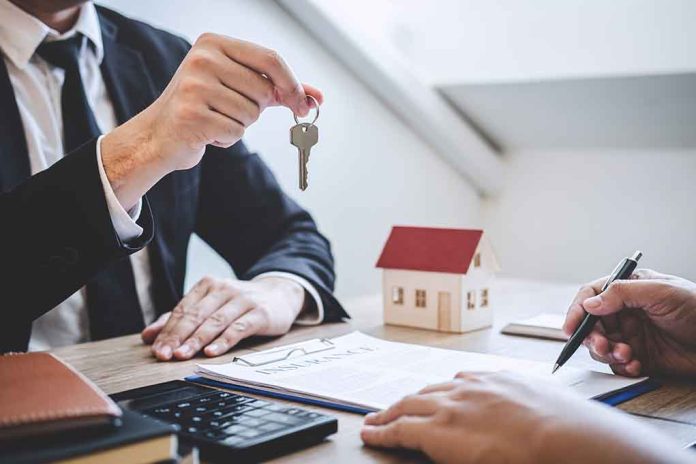
How Does Renting To Own REALLY Work? Your Questions Answered
(NewsBroadcast.com) – To buy a home with a low-interest rate, you will need a decent down payment and a good credit score. For this reason, not everyone may qualify to purchase in today’s real estate market. Renting to own may be a good alternative, but it comes with unique advantages and challenges. Below are helpful tips about going through the rent-to-own process.
What Is Renting to Own?
Initially, you will sign a lease with specific guidelines outlining the option to possibly buy the home before the lease is up. Some rent-to-own options also allow a percentage of your monthly payment to count towards equity on the residence you’re planning to purchase. Renting first will allow you to save money, pay off debts, and raise your credit score before officially getting a mortgage.
A lease-purchase option agreement gives you the option to purchase the home before the full term is up. A lease-purchase agreement requires you to buy the house when the deal is complete. Before signing anything, make sure you are fully aware of the terms and stipulations involved in the documents.
Renting to Own: Pros
Renting before buying offers you the chance to hold the residence while saving money and getting your finances in order before the lease ends. Another positive factor is that you will lock in a price for the house at the lease signing date. No matter how high the real estate market may get, you will secure your cost no matter what.
Honestly, renting to own is most compatible with poor credit. Rebuilding credit can take years, which is why buying a house may not be immediately possible for everyone. Being able to rent first while you work on paying off bills and building your credit back up will offer you the opportunity to establish stability soon.
Renting to Own: Cons
The biggest downside to renting to own is that you lose money each month on what could have gone towards equity on your house. Each month, all or part of your rent payment will go to your landlord because they still own the place you are working towards taking on one day. Renting to own lengthens the home-owning process because it will take much longer to own your residence finally.
As mentioned above, when you sign a rent-to-own lease agreement, you often lock in a sale price for the home. If the housing market drops considerably, you will end up losing money on the sale of your house because you already agreed upon a higher price. This situation is almost impossible to judge ahead of time, making renting to own somewhat risky.
Overall, buying a residence outright is the best financial option. However, renting to own is one of the best routes to take for someone who can’t afford to put a substantial down payment or has bad credit. No matter what option you decide, make sure you have a secure contract in place that protects you and your landlord.
Copyright 2022, NewsBroadcast.com














